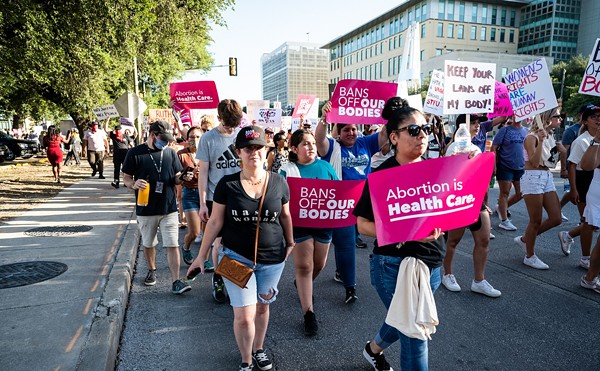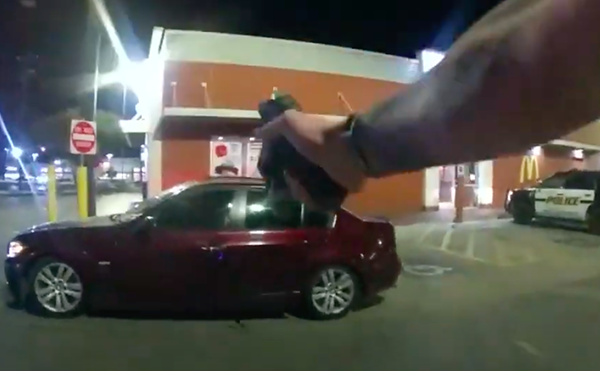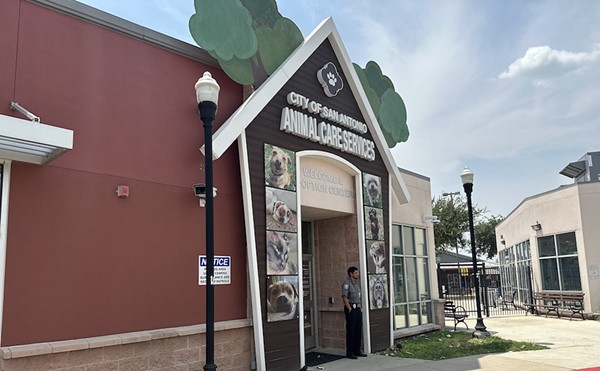Greg M. Schwartz
Will the Texas House get a controversial voter ID bill out of committee this week, and if so, what form will it take? The clock is ticking, with the May 11 deadline to vote bills out of committee just a week away. It seems that most in Republican leadership know that the version which passed the Senate, (SB 362), has little chance of passing a House vote, hence a furious round of negotiating.
Compromises in House Election Committee Chairman Todd Smith's version of the bill have been reported to include a provisional ballot opportunity for those whose signature at the polling place matches the signature on their voter registration application, or another public record in possession of their county registrar.
This might sound like a fair compromise on the surface. But those familiar with the investigations of acclaimed journalist Greg Palast know that casting a provisional ballot and having it counted are two entirely separate matters.
“In 2004, a third of all provisional ballots â?? as many as 1 million votes â?? were simply thrown away at the discretion of election officials,” reported Palast of the Bush-Kerry presidential contest. “Many voters are given provisional ballots under an insidious tactic known as â??vote caging,' which uses targeted mailings to disenfranchise black voters whose addresses have changed. In 2004, despite a federal consent order forbidding Republicans from engaging in the practice, the GOP sent out tens of thousands of letters to â??confirm' the addresses of voters in minority precincts. If a letter was returned for any reason â?? because the voter was away at school or serving in the military â?? the GOP challenged the voter for giving a false address.”
Other issues of contention include whether people should be allowed to vote if they can provide two forms of non-photo ID in lieu of a photo ID, and when the new law would take effect. 52 House Republicans signed a Statement of Principles early last week demanding that photo ID be required and that the law take effect at the next possible uniform election date. By Wednesday, 71 of 76 House Republicans had signed on to the document. The holdouts were Smith from Euless, House Speaker Joe Straus of San Antonio, and Reps. Delwin Jones of Lubbock, Tommy Merritt of Longview and Dennis Bonnen of Angleton. Jones and Merritt both crossed the aisle last session to vote against a voter ID bill. Straus was not asked to sign, due to his position as Speaker of the House.
The new House version of the bill is reported to delay implementation of the law until 2013. This is a significant difference since redistricting is to occur in 2011. Smith's bill would also reportedly only take effect if lawmakers earmark $7.5 million in the 2010-11 state budget for voter registration efforts.
Inside sources in Austin say that Smith's compromise version of the bill will cause further sparks within the GOP.
“The compromised version offers so many concessions to the voter advocacy groups, such that it would make it not palatable to the right-wing Republicans,” said Deep Longhorn.
This was clearly evidenced by the Republican elephant stampede to sign the statement of principles. But Chairman Smith demonstrated that he wasn't as disconnected from reality as many of his colleagues apparently seem to be when he questioned whether the Texas GOP wants to make a statement or pass a bill, saying was trying for the latter.
Eric Opiela, executive director of the Texas Republican Party, told the Queblog that the movement to sign the document was not just trying to make a statement.
“The Senate version had flaws (such as allowing non-photo ID to vote) which precluded its passage in the House. I have faith and confidence that Chairman Smith's House version of SB 362 will conform as closely as possible to the principles and that we have the votes right now to pass it out. So, no, the Statement of Principles is not about partisan posturing â?? it sets the base upon which the House will consider this legislation in the coming week,” said Opiela.
Smith's committee is expected to vote some version of the bill out of committee this week. The bill would then go to the calendar committee to schedule for a vote on the House floor. San Antonio's Straus holds great power here â?? if he doesn't like a bill, it's unlikely to be scheduled for such a vote.
But even if the bill does pass the House, it would still have another hurdle to clear before becoming law.
“Even if the photo Voter ID bill is approved by both chambers, it would need to receive pre-clearance in the Justice Department,” noted Deep Longhorn.
This is due to the fact that Texas is among states with a history of racial discrimination in voting, and must therefore receive Justice Department approval before changing voting procedures (per Section 5 of the Voting Rights Act.)
Meanwhile, the Texas Democratic Party wants supporters to contact the Republican Elections Committee members and “ask them to put the extreme partisanship of Voter ID legislation aside so that the House can deal with real problems.” They've also come up with an online game called Texas Voter Twister, that provides an equally amusing and disturbing look at how many different ways Texans could be disqualified from voting under SB 362.
Stay tuned for more as this story plays outâ?¦

















